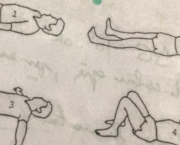
Self-esteem: How you get yours might be making you unhappy
 6 min
6 min
Self-esteem: How you get yours might be making you unhappy
For over 30 years of my life, I based my sense of happiness on my achievements and how these made me look in other people’s eyes — mainly those close to me.
I’ll admit that for all those years, I had a clear case of the “not-good-enough syndrome”, although I couldn’t see it at all back then. I say “I’ll admit” because I’m well aware that this is a widespread “thing” but one that not everyone feels comfortable discussing at dinner parties.
For so many reasons, I simply bought into the belief that I needed to prove my worth to others — all the time. Because of this, my self-esteem suffered from a “yo-yo dynamic”.
I’m happy to report that I’m well on the recovery path to a much more satisfying relationship with myself now :) thanks to understanding the below, so keep reading. However, like anyone “in recovery” knows, it’s a slippery slope back into old habits if one’s not mindful.
This is a systemic issue as our culture only rewards those who excel at something. No wonder we feel in competition with just about anyone close to us. We do so because that’s how we get our self-esteem, by comparison on whatever category we think it’s vital in our lives, i.e. money, looks, relationship, etc.
Self-esteem is nothing more than a global evaluation of ourselves — it’s how you see you. Your ego uses judgements and labels like good or bad, better than or worse than, good-looking or ugly, etc. to paint a picture.
Your ego needs to feel “special” or “above average” when compared to others to get high self-esteem. Hence why we might even (unwittingly!), put someone down every so often, so we come out winning. This way our ego is pleased- e.g. “yeah, his car is alright, I guess…” (maybe it hurts our ego that he has the car we fancy?).
It’s clearly not realistic for us all to feel we’re the best, at everything, always. And this is the first natural flaw to self-esteem — it’s tough to keep it up all the time.
Another flaw in self-esteem is that the outcome of our ego’s little comparison game may change depending on who we try to measure up against. The antidote!? Perhaps accepting that we all have personal shortcomings and that we’re not perfect (no matter what your mama tells you… ;).
Sooner or later, one way or another, we’re all reminded that there’s always someone more talented, better-looking and with more money than us. So, you might be wondering: “is high-self-esteem problematic!!?”. Not in itself, but it’s how you get it that may pose a bit of an issue for your mental health.
So far, we’ve learned how self-esteem is seldom a reliable way to boost your chances of happiness. And I’m sure that you can still remember the last time you ended up with the short straw — that conversation with your friend about his exotic holidays?; perhaps when that same friend told you about his pay rise? Anyhow, if self-esteem is not the way forward, what is!?
Well, let’s start by looking at how our ego tends to blame us for not being X, Y or Z (i.e. better than that friend). Most of us probably react to this “attack” by:
1- Feeling shame and going into ourselves (self-isolation).
2- Joining in with our wounded ego and turn on ourselves (self-criticism).
3- Catastrophise about our life (self-absorption).
Now, there’s a way to “care” for all of the above unpleasant feelings. Still, it’s most certainly not a “cure” — driving these painful feelings out will not work long-term, so we might as well accept they’re here to teach us something about ourselves.
They say “what we resist, persists”. These rejected feelings typically go to the basement and lift weights. So, when they come back (and they will come back without warning), they’re much more powerful.
The smarter (I have not said less painful!) way to process these feelings is by counteracting our ego’s natural ways of responding to an “attack”. The way we do so is by:
1- Reminding ourselves how everyone suffers for similar reasons when we feel we’re the only ones and therefore “run to hide” in shame (shared humanity).
2- Being kinder with ourselves just because we’re feeling bad (self-kindness).
3- Being mindful of our thoughts, feelings and emotions and seeing them for what they are — no more, no less (mindfulness).
Now you’ve got the recipe for overcoming most situations where your ego tries to trip you up in his self-esteem game — show him who’s boss (without a wrestle!).
The Self-Compassion Coach
P.S. Check out a selection of my most popular blogs here - You can also subscribe to my weekly blogs!
P.P.S. Curious as to how I could help you? Learn more









 English
English
 Français
Français
 Deutsch
Deutsch
 Italiano
Italiano
 Español
Español



 Contribuer
Contribuer







 Tu peux soutenir les auteurs qui te tiennent à coeur
Tu peux soutenir les auteurs qui te tiennent à coeur





